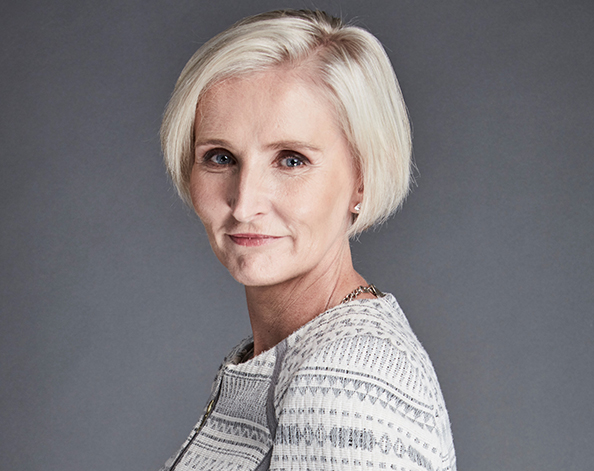Get Focus insights straight to your inbox
Philanthropy is a wonderful way to contribute to society while also creating a legacy for a family to rally around. But how can philanthropy help tackle South Africa’s many challenges? Why is a strategic approach best?
And how can philanthropists contribute to tackling the Covid-19 crisis?
How has the concept of philanthropy changed over the years?
Philanthropy has a long history, beginning as a response to community needs at a local level, as well as kindness towards strangers. It grew with the rise of industrialisation as a new class of wealthy individuals and families looked to distribute their wealth for the common good.
Further impetus came during World War II, with philanthropists contributing to the war effort at a time when many young men were enlisted to fight. This period also saw many women taking leading roles in philanthropy.
Today, philanthropy is more focused, organised principles of previous years. More emphasis has been placed on collaboration between sectors, while technology has provided better and quicker ways to give, as well as to identify and reach out to those in need.

The scope of giving in South Africa is one of the broadest and biggest in the world, especially considering that it is a ‘third world’ country. While financial contributions are often the main focus, the giving of time and knowledge through volunteering, mentoring and the like adds another important dimension by bridging gaps and connecting people from all walks of life.
What are the unique features of philanthropy in South Africa? How is this space responding to our country’s challenges?
The scope of giving in South Africa is one of the broadest and biggest in the world, especially considering that it is a ‘third world’ country. While financial contributions are often the main focus, the giving of time and knowledge through volunteering, mentoring and the like adds another important dimension by bridging gaps and connecting people from all walks of life.
South Africans are charitable by nature and tend to live out the concept of ubuntu. The 2019 South Africa Giving report, a survey commissioned by the Charities Aid Foundation, found that 88% of South Africans had donated to a non-profit organisation, participated in volunteering or sponsored someone in the previous 12 months.
South Africa is unique in other ways, too.
The concept of contributions to stokvels or burial societies can be seen as charitable: not all giving happens through registered or formal NGOs, and organisations that are supported include religious bodies, savings clubs and community associations.
Philanthropic donations range from low- to middle-income earners and from high- to ultrahigh-net worth individuals through various mechanisms; they are not exclusive to any population group within South Africa.
Why is it important to have a strategic approach? Where can one go for help in developing this strategic approach?
A strategic approach helps to focus on giving to achieve holistic upliftment. One strategy does not fit all, however. A multitude of differing strategies can be applied in the relevant contexts to achieve the maximum impact from limited funds.
Depending on the scope and scale of need in a community, various projects from different NGOs could contribute holistically more than they can in isolation. The benefit of being able to view the problem ‘as a whole’ and focus resources accordingly, means collaboration and funding to various partner organisations can be immense: ‘the whole is greater than the sum of its parts’.
A strategic approach allows philanthropists to ‘layer’ the impact made, by first focusing on immediate needs and then moving up Maslow’s hierarchy of needs to assist further over a period of time.
Administrators of foundations as well as industry experts can assist with providing strategic guidance. This is a service Investec Wealth & Investment offers to all clients, whether in the form of a foundation or through direct giving, enabling clients to establish their strategy and vision for the change they wish to make in the world.

Philanthropy is one way in which families can develop and live out their legacy through generations, maintaining a value system and altruistic objectives that are timeless. Their vision can be rooted in the founding members of family trusts and foundations but can be shaped by the trustees and family members involved over years to come as the needs of communities change.
What role can philanthropy play in ensuring values are maintained through the generations?
Philanthropy is one way in which families can develop and live out their legacy through generations, maintaining a value system and altruistic objectives that are timeless. Their vision can be rooted in the founding members of family trusts and foundations but can be shaped by the trustees and family members involved over years to come as the needs of communities change.
One should develop such a value system while the donor, founder and trustees are alive, working together to shape and grow the objectives. A good example is the Bill and Melinda Gates Foundation (which has also received funding from Warren Buffett). The foundation has a clear idea of what it wishes to achieve. It focuses on, among other objectives, healthcare (the elimination of polio); a water purification system (to eliminate dysentery in the poorest areas of the world); and an alternative energy fund (to explore the potential of nuclear power). Huge strides have been made to achieve the foundation’s objectives, which continue to evolve.
What role can philanthropy play in contributing to a more sustainable future?
Foundations are typically formed with the intention of enabling sustainable giving. The capital is invested and then, in accordance with the trust deed, the interest is paid out to beneficiary organisations each year, with the intention of preserving capital through generational transfer of wealth. This approach in itself provides the opportunity for sustained, long-term giving.
Viewed through a lens of providing a hand up and not merely a handout, philanthropy enables communities by providing them with the various skills and tools they can use to build a better future for themselves and their families.
Strategic philanthropy, as mentioned above, can also result in a layered impact over a period of time, which can then result in more holistic and sustainable upliftment.
Does SARS offer any tax relief for philanthropic endeavours?
We recommend an entity apply to register a trust/company/association as a public benefit organisation (PBO) with the Tax Exempt Unit at SARS. In order to qualify as a PBO, the foundation must perform one or more public benefit activities (PBA). PBAs must be carried out in a non-profit manner and with an altruistic or philanthropic intent. They must also be carried out for the benefit of, or be widely accessible to, the general public at large. This may include a specific sector of the general public but may not be for the benefit of a small and exclusive group.
Preferential tax treatment is granted to foundations established for the benefit of the general public. The main tax benefits available to PBOs are that they are fully exempt from paying income tax if they carry no or limited trading activities. PBOs are also exempt from the payment of capital gains tax when disposing of an asset, provided that the asset was not used to carry on business or trading activities.
In addition, approved PBOs are exempt from the payment of transfer duty when acquiring immovable property, provided the property is used solely or substantially to carry out public benefit activities. PBOs are also exempt from donations tax and dividends tax. Individuals can make donations to PBOs without paying donations tax or capital gains tax. If individuals make a bequest to a PBO in their will, the bequest will be exempt from estate duty.
The Covid-19 pandemic has left many vulnerable South Africans exposed or worse off. What role can philanthropists play in addressing the problems created by this pandemic?
Philanthropists can truly live out their altruistic objectives by providing capital to various initiatives that will support those who are in need during this time of crisis. Collaboration and partnerships are key in all efforts to uplift communities but particularly in times of crisis. This ensures there’s little duplication of effort, time or financial resources.
Philanthropists and non-profit organisations can play a collective role by pooling funds and focusing efforts on the execution methods that yield the highest results, and provide the maximum social return on investment.
Furthermore, many foundations sit on large endowments that can be accessed during times of crisis. The underlying beneficiary organisations typically have an on-the-ground footprint and relationship within communities across South Africa and thus are close to the source of where the greatest needs will arise. This is important since the economic and social effects of the disease are likely to persist long after the pandemic has been brought under control. This access to community needs and distribution of assistance is vitally important in ensuring the resources are allocated where and how they are needed most.




